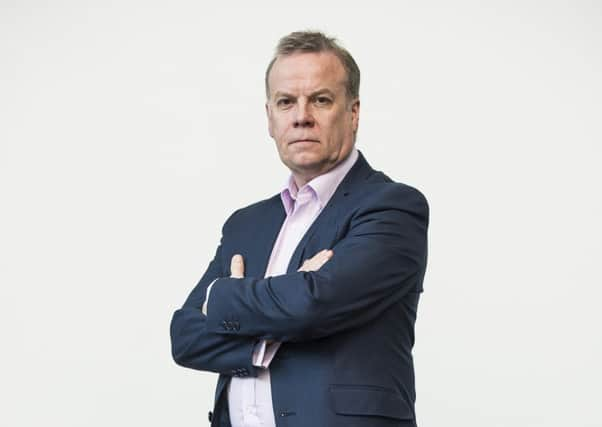Comment: Speed trumps logic in bank share sale


While Royal Bank of Scotland will remain a basket case for some time yet, the Treasury is likely to offload more shares in Lloyds and give the nod to resuming dividend payments, six years after its last payout.
There may be some further confirmation this week on when and how this will be done, but the key driver will be political expediency rather than commercial logic. Investors have been forced to accept the future of the banks is umbilically tied to ministerial ambition that won’t necessarily coincide with the normal rules of engagement.
Advertisement
Hide AdAdvertisement
Hide AdFor those looking purely at the numbers and the timetable for recovery, there was some disappointment last week when Lloyds revealed it was setting aside a further £1.8 billion to compensate those mis-sold payment protection insurance which effectively wiped out prospects of a dividend being paid this year. That hit the shares, which have been edging towards £1, well clear of the break-even price on that £20bn of bail-out money.
Those hardy private investors who fancy jumping back into Lloyds will be tempted by the prospect of a revived dividend but will want more assurances from chief executive Antonio Horta-Osorio this week that there are no more unexploded bombs out there.
Last week’s PPI provision is the latest in a series that began with him supposedly kitchen-sinking the problem in 2011 with a £3.2bn compensation package. That figure has since grown to almost £10bn and who is to say it won’t go higher still?
Aside from the dividend, the Treasury told me last week it has made no decisions on whether to sell more shares this year or if any sale will include the retail market – the general public. Horta-Osorio will probably fudge the issue this week, which won’t do the shares any favours. It would, therefore, help the Treasury’s cause to make a declaration on a timetable and a format. The best bet is that Chancellor George Osborne will follow the US policy of drip-feeding shares into the market to build confidence and so support the price. In that case, expect a release of shares in the spring, maybe another 5-10 per cent, with an offering to the public kick-started in the autumn.
There is, of course, the little matter of politics and autumn/winter will be one of the most intense periods of political in-fighting in Britain for some time. It will be dominated by the independence referendum and the campaign for next year’s UK general election. In the scheme of things, the future of the banks will either take a back seat or be a driver of economic arguments to come.
Osborne is keen to get both Lloyds and RBS off the balance sheet, both to ease the financial burden and because ministers are tainted by association with the banks every time there is bad news. RBS has no chance of early release, but Osborne will be able to contrast Lloyds’ recovery under his stewardship with that of his predecessor who was forced into that humiliating rescue. The only thing standing between the Chancellor and a successful share issue is whether the price is right. And that brings us back to whether or not Horta-Osorio has any more of those unexploded bombs lying in wait.
Expat looking for direct action in referendum
IT has been good to see business leaders begin to engage with the independence debate – and in particular those from outwith Scotland. After BP boss Bob Dudley’s intervention last week, I heard yesterday from US-based Hugh Aitken, right, best known here for running the Sun Microsystems plant at Linlithgow. He wants to foster more support for the No campaign and is taking steps to garner support from those whom he believes can help.
Aitken left Scotland three years ago to take up a senior role with Microsoft in the US and is now working with Hewlett-Packard. He says he is concerned by the way things are going back home and fears that the Yes campaign may win September’s referendum. He supports Scottish tycoon Sir Tom Hunter who wants to bypass the politicians and galvanise the Scottish people.
Advertisement
Hide AdAdvertisement
Hide AdIn one of several emails Aitken posted to contacts around the globe he says he is “reaching out for your help and ideas around how we can better influence the Scottish voters from at minimum a business position”.
Aitken says it is not in his character to “sit back and watch this roll out without some level of involvement”.
From what he says he seems to have few firm ideas on just how to get involved but his comments suggest he won’t settle for staying on the sidelines.
Those with long memories may recall his high-profile spat with the Scottish government in 2003 when he resigned from a manufacturing think tank claiming the level of obfuscation “makes my head scream”.
To say he would not suffer fools gladly is therefore an understatement and he is the sort of personality the No campaign arguably needs. But just how much he can achieve from the comfort of his home in California is another matter.
Twitter: @TerryMurden1